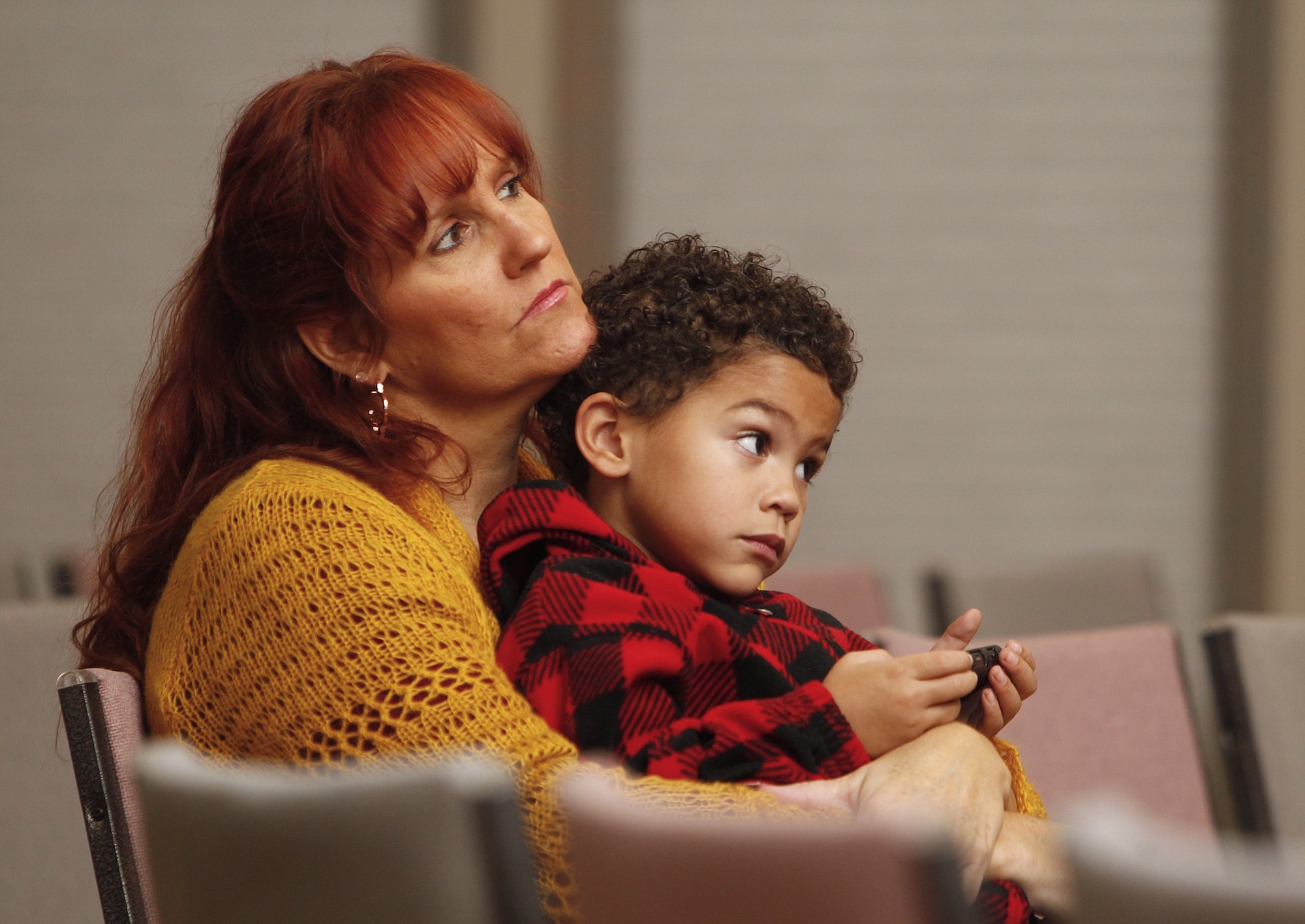On the Web
For more information about HIV/AIDS, visit: endaidswashington.org
www.co.clark.wa.us/public-health/hiv
For more information about Martha’s Pantry, visit:
www.marthaspantry.com
Did you know?
Human Immunodeficiency Virus is the illness that leads to AIDS. Acquired Immune Deficiency Syndrome is the late-stage emergence of opportunistic illnesses caused by HIV.
More than 1.2 million people in the United States are living with HIV infection, and almost 1 in 7 (14 percent) are unaware of their infection. n Over the past decade the annual number of new HIV infections has stabilized at around 50,000 per year, while the number of people living with HIV has increased.
On the Web
For more information about HIV/AIDS, visit: endaidswashington.org
<a href="http://www.co.clark.wa.us/public-health/hiv">www.co.clark.wa.us/public-health/hiv</a>
For more information about Martha's Pantry, visit:
<a href="http://www.marthaspantry.com">www.marthaspantry.com</a>
Gay men and African Americans are disproportionally affected by HIV/AIDS.
Nearly 14,000 Americans with an AIDS diagnosis died in 2011; approximately 650,000 Americans with an AIDS diagnosis have died overall.
Worldwide, approximately 35 million people are living with HIV.
In Washington state
Gov. Jay Inslee announced on Monday that he would task an HIV/AIDS steering group with developing a statewide plan to halve the rate of new HIV diagnoses by 2020. Nearly 14,000 Washingtonians are living with HIV today. The rate of new diagnoses is declining slowly; there were 540 new HIV diagnoses in Washington state in 2008 and 470 in 2013. There have been 785 total HIV diagnoses in Clark County.
The slim size of the crowd recognizing World AIDS Day on Monday night in Vancouver had at least one speaker who is living with HIV wondering whether the disease’s time in the spotlight has passed.
Dec. 1 has been World AIDS Day since 1988. Twenty people turned out for a commemoration at Vancouver’s Unitarian church, and whether the small turnout was because of the development of medications that give people with HIV/AIDS the chance to live a long and happy life — or because people are simply still too afraid — Guy Michelson looked around the room and wondered “if people are losing interest. I wish there were more people here,” he said.
Michelson, who lives in Vancouver and serves on the Portland-based HIV Services Planning Council for this area, said he got “the call no one ever wants to get from their doctor” in early 2002. But what he assumed would be a death sentence has turned out to be anything but.
“It’s considered a chronic disease,” Michelson said. “It’s something you can learn to live with. It’s manageable. It’s not that hard.”
If you have access to those medications, that is. Michelson said too many people may believe the crisis has passed — but insurance companies are demanding higher and higher copays for the crucial AIDS drugs and even steering people to the more expensive formulations when affordable ones are available.
“I know people who can’t get their drugs anymore because of the copays,” he said. “Something is wrong here.”
Did you know?
Human Immunodeficiency Virus is the illness that leads to AIDS. Acquired Immune Deficiency Syndrome is the late-stage emergence of opportunistic illnesses caused by HIV.
More than 1.2 million people in the United States are living with HIV infection, and almost 1 in 7 (14 percent) are unaware of their infection. n Over the past decade the annual number of new HIV infections has stabilized at around 50,000 per year, while the number of people living with HIV has increased.
Gay men and African Americans are disproportionally affected by HIV/AIDS.
Nearly 14,000 Americans with an AIDS diagnosis died in 2011; approximately 650,000 Americans with an AIDS diagnosis have died overall.
Worldwide, approximately 35 million people are living with HIV.
The other key to living a good life despite HIV/AIDS is catching it early, Michelson added. Unfortunately, he added, the age group that’s most affected by HIV/AIDS — who are likeliest to engage in unprotected sex — is 18 to 26 years olds. “Do they think they’re invincible?” Michelson wondered. Their attitude is total denial, he said.
Yvette Mercer can relate to that.
“I avoided the test at all costs, opportunity after opportunity,” she told the group. Meanwhile she had a case of pneumonia that went from serious to life-threatening. “It zapped my entire immune system,” she said.
The diagnosis finally came at age 33, and Mercer dropped her former life in Florida and moved to the Pacific Northwest, where her parents — and those medications — brought her back to health.
At that point, she decided, she was going to share her reality with everyone she knew. “Even if one person listened to me and used a condom or got tested,” she said, it would make it all worth it. “I feel extremely blessed to be here. I share my story whenever possible.”
Here’s what else made survival worth it: the birth of her son, Jayden, who accompanied her to the microphone. Jayden is HIV-negative, she said. Mercer was 43 years old when Jayden was born.
“God decided to save me,” she said. “I’m going to stay alive as long as possible and be healthy and strong for him.”
The event was sponsored by Martha’s Pantry, a local food bank that caters specifically to people with HIV/AIDS.




